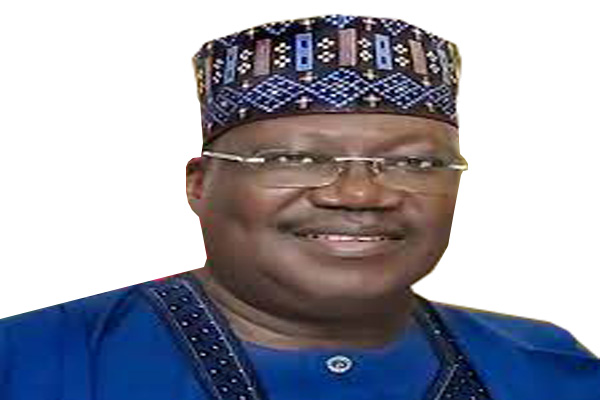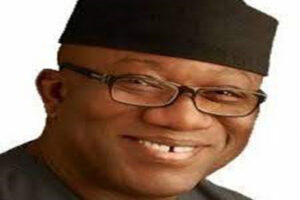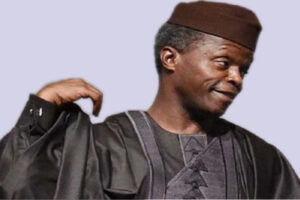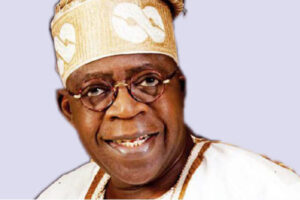Ahmad Lawan – New counterforce in the race
Three statements of fact can be made about Senator Ahmad Ibrahim Lawan’s political career without fear of contradiction. First, he is one of the longest serving federal lawmakers in Nigeria. Second, he is one of the most loyal party men in an environment where cross-carpeting is the rule rather than the exception. Third, he is that rare Nigerian politician who hates to ruffle feathers.
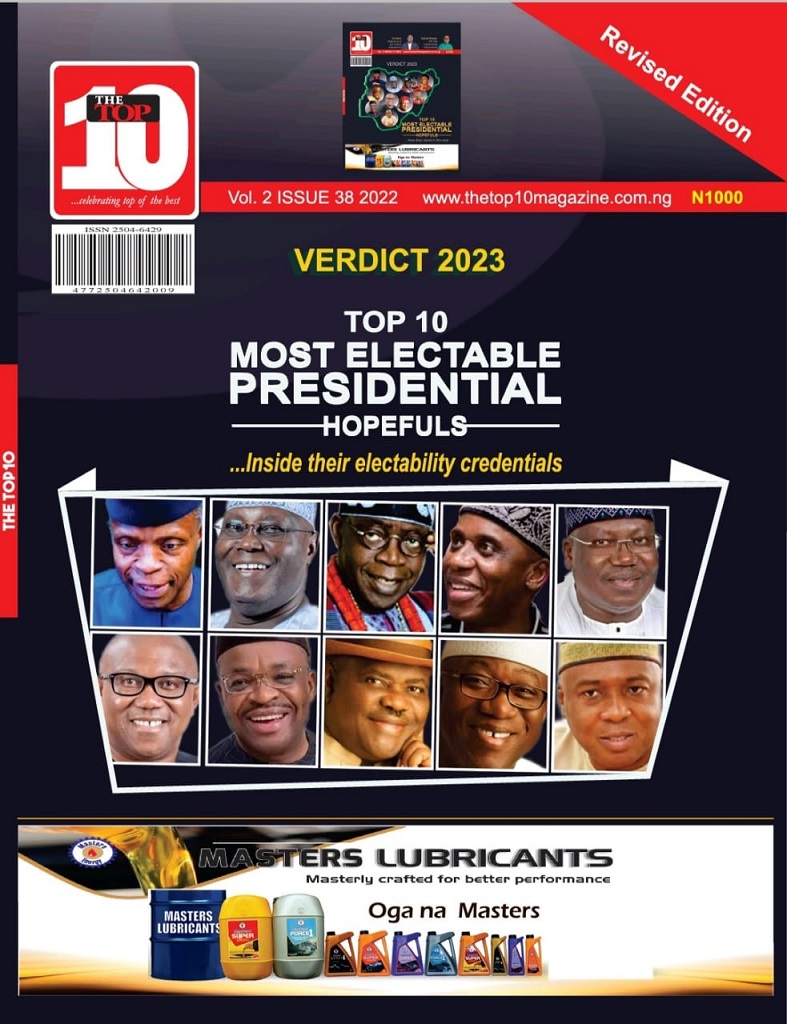
Lawan, 63, President of the Nigerian Senate, has been a federal legislator since the beginning of the current political dispensation. He served two terms as member, House of Representatives between 1999 and 2007 and moved up to the Upper Chambers, the Senate, where he is serving a third term. Lawan has remained faithful to the All Progressives Congress (APC) right from its legacy parties – All People’s Party (APP) All Nigeria People’s Party (ANPP) – through the entire 16 years of Peoples Democratic Party (PDP) rule, in spite of the allure of (and pressure to defect to) the then ruling party.
Even in his position as Senate Minority Leader, Lawan refrained from antagonistic politics, preferring instead to play politics of constructive engagement with the ruling party. And since becoming Senate President in 2019, he has perfected politics of accommodation across partisan divides and between the executive and legislative arns of government. His election and reelection by his constituents every four years, or six consecutive times, in his 23 years in the National Assembly is ample evidence of his acceptability by his people and stature in Nigeria’s national politics. He certainly belongs in the same class as the legendary American legislators who become presidential materials, contest and eventually get elected as U.S Presidents.
With Lawan’s legislative pedigree, governance experience, national outlook and constituents’ multi-year endorsements, it was becoming a surprise that the Professor of Geography did not throw his hat into the presidential ring for the 2023 elections until recently. The explanation may be found in his undiluted loyalty to his party, APC, which has zoned its Presidential ticket for the 2023 elections to Southern Nigeria. The Senate President is from Yobe State in Northeastern Nigeria.
But it appears Lawan has, for once, pushed party loyalty aside and joined the presidential race at the 11th hour. Lawan said though he was joining the race very late because the field is saturated with aspirants, he assured Nigerians that he would play the game by the rules.
“I will play the games by the rule. I will not circumvent any rule. I will not go against our party rules. I place my trust fully in the Almighty God on this journey,” he said while receiving the Presidential Expression of Interest and Nomination forms purchased for him by a political group, National Stability Project, led by Chief Sam Nkire.
Personal accomplishments
Born in 1959, Senator Lawan completed his primary education at Sabon Gari Primary School, Gashua in 1974 and then enrolled at Government Secondary School, Gashua where he obtained his O’Level certificate in 1979.
From there, he proceeded to University of Maiduguri where he obtained a Bachelor’s degree in Geography in 1984. Same year, he moved to Benue State, North Central Nigeria, to do his one-year compulsory service in the National Youth Service Corps (NYSC) programme.
He later enrolled and had his Masters degree in Remote Sensing from the Ahmadu Bello University, Zaria, and a Doctorate degree in Remote Sensing/GIS from Cranfield University, UK, in 1990 and 1996, respectively.
Before venturing into politics, Mr Lawan had had experience in civil service and the academia. Between 1985 and 1986, he worked in the Yobe state civil service as an Education Officer in the Ministry of Education. From there he moved to the University of Maiduguri where he lectured for 10 years from 1987 to 1997. He was employed as Assistant Lecturer 1 in 1986.

Political/Governmental experience
Senator Lawan began his lawmaking career at the House of Representatives in 1999 when he won election to represent Bade/Jakusko Federal Constituency of Yobe State. The lawmaker was elected under the platform of All People’s Party (APP), a party he pioneered as Vice Chairman of Yobe State Chapter. He remained a member until his re-election on the platform of same party in 2003, Lawan was made the chairman of House of Representatives Committee on Agriculture in same year and held the position till 2005.
From Agriculture, he was appointed to head the Education Committee in 2005 and held this position till the expiration of the 5th House of Reps. In 2007, Lawan contested and was elected a Senator to represent Yobe North Senatorial District. This time, his party had transmuted to the All Nigerian Peoples Party (ANPP).
In 2009, as chairman of the Senate committee on Public Accounts, he initiated and sponsored the Desertification Control Commission Bill.
Still on the platform of ANPP in 2011, Lawan ran successfully for a second term as Senator.. His party later merged with others to form the now ruling All Progressives Congress (APC) in 2014.
During the 2015 general elections, Lawan, now with the ticket of APC, again, contested for and won the Yobe North Senatorial seat. One of the events Senator Lawan would be remembered for is his experience in the race for Senate presidency in 2015. He had emerged as the favoured candidate of the APC for the position of Senate President; and with a majority in the Senate, he was expected to carry the day. But this was not to be.
On June 8, 2015, the day the formal election for senate president was to be held, while majority of APC senators, about 50, were waiting for President Muhammadu Buhari who had invited them to a meeting with him at the International Conference Centre, Abuja, his rival, Senator Saraki, and other “rebel” Senators of the APC moved into the National Assembly complex, where the police had thrown a cordon to prevent workers and reporters from entering, for the “election” of principal officers.
A total of 57 senators loyal to Saraki, most of them PDP members, unanimously “elected” him after he was nominated by Senators Dino Melaye and Sanni Yerima. That was how Senator Lawan lost out. Two weeks after the defeat to Saraki, Lawan again lost a bid to become Senate Leader despite the backing of APC.
Instead of him, the APC senate caucus from the north-east nominated and elected Ali Ndume as Senate Majority Leader and Bala Na’ Allah (Kebbi South) as Deputy Majority Leader.
But Ndume would soon fall out with the power brokers. He was removed as Senate Leader in January 2017 and, following recommendation by the APC caucus, was replaced by Lawan who held the position until the end of the 8th Senate.
Just like in 2015, Senator Lawan again emerged as party favourite for the position of Senate President in 2019. At first, he was poised to contest against two of his colleagues; Ali Ndume and Danjuma Goje, but Goje withdrew a week before the election day.
On the D-Day, 109 Senators-elect voted and Lawan emerged as Senate President with 79 votes to defeat Ali Ndume, his closest rival. In the last three years the Ninth Assembly under Lawan has built a cordial working relationship with the other arms of government, more noticeably the Executive. But this has been achieved without compromising the independence of Parliament or the doctrine of Separation of Powers.
Understandably, people who prefer hostility to amity between the two elected arms of government do not like this. They have thus malligned him relentlessly and derided the ninth Assembly as a rubber stamp. But Lawan has proudly declared that “the ninth senate has done what we need to do to make Nigeria great… We can achieve more when we are united. Nigeria is designed by the grace of God to be a nation of many people of different orientations, different sentiments but we must be a people with a common purpose and common destiny and this is what we are trying to achieve.”
Integrity/credibility
Senator Lawan does not compromise his principles. For him, politics is not an art of deception. “I don’t believe politics is about deception. I prefer to call a spade a spade,” Lawan once said while addressing his constituents in his country home, Gashua in Yobe State. His fidelity to that principle has won and cost him a few friends. But it has also underpinned the trust of his constituents, helping him to become one of the longest serving federal lawmakers in Nigeria.
Those who have worked with him will readily attest to the fact that you cannot persuade Lawan to act contrary to his conviction. Some see this as rigidity. But, to him, it is a compliment, in as much as he believes that he stands for the common good.
He once narrated the huge pressure he and his colleagues faced in 2006 to support the aborted Third Term Agenda of President Olusegun Obasanjo. As member of House of Representatives then, Lawan was lobbied intensively to support the removal of a pillar of democratic stability. But he bluntly refused, even at the face of a threat to deny him a return ticket to the National Assembly. However, the same Lawan also played a significant role in calming down his colleagues in the House every time they angrily attempted to impeach President Obasanjo over what they perceived as impeachable offences by the then president.
More recently, as Senate President, he came under pressure from some very powerful stakeholders in the oil industry who were against the passage of the Deep Offshore and Inland Basin Production Sharing Contract Act amendment Bill. Lawan rebuffed the pressure because he was convinced that the benefit of the amended bill is huge for the Nigerian economy. A similar pressure was mounted on him when the Ninth Assembly confronted the jinx of the Petroleum Industry Bill (PIB). But Lawan again stood his ground and the two decades old jinx was broken – the bill was passed into law.
Expectedly, after the passage of the PIB in August 2021, Lawan and other legislators were accused of receiving bribes to guarantee the legislation’s advancement despite significant public opposition to parts of the text. Several legislators expressed anger, not that the House Soeaker, Femi Gbajabiamila, and Lawan allegedly took bribes but (wait for it) that the bribes were not shared equally among the legislators! Gbajabiamila, Lawan, and others all initially declined to comment on the report. But everal days after the story broke, Lawan denied it, stating that the report was “unwarranted, unproven, and false” before warning Nigerians to “always think positive about their leaders and their governments” and advising that “if they have issues they feel very strongly about, let them speak the truth and we are prepared to take corrections that we feel should be taken to make us do better.”
National Outlook
Nothing can provide better evidence of Senator Lawan’s national political outlook than his longevity at the National Assembly. Serving as national legislator for 23 years at a stretch, rising from a “Sophomore” Reps member to become Senate Minority and Majority Leader as well as President and Chairman of the National Assembly is no mean opportunity for Lawan to build a viable national political network required to win a presidential ticket and election. Apparently, he seized the opportunity, hence the confidence he exuded when he eventually decided to contest. He said that in deciding to join the race, he had listened to various calls countrywide asking him to contest the office of the president and that he was ready to commit himself to the calls.
“I want to commit myself to this call from all walks of life. This is not my journey. This is our journey because every hand must be on deck to take the country to the next level,” he said.
In deciding to run at the 11th hour against the zoning direction of his party, Senator Lawan apparently weighed in his comparative advantage in the politics of nothern Nigeria, particularly that of his Northeastern geopolitical zone. Analysts say he waited until the rival party, PDP, threw its presidential ticket open to all comers, apparently to take advantage of the huge northern votes. It is projected that Atiku Abubakar, one of the frontline aspirants from Adamawa state of the northeast could pick the party’s ticket and profit from the block northern muslim votes. According to analysts, the late entry into the race by Senator Lawan, a fellow Muslim who hails from neighbouring Yobe state in the same zone is to position himself to benefit from any last minute decision by his party, APC, to counter PDP and Abubakar’s seeming advantage by picking its flagbearer from the north.
Based on this prospect and Lawan’s other credentials, he has been considered among the top 10 presidential aspirants that could become Nigeria’s next president, going by the latest assessment by the Top10 magazine’s board of selectors.

